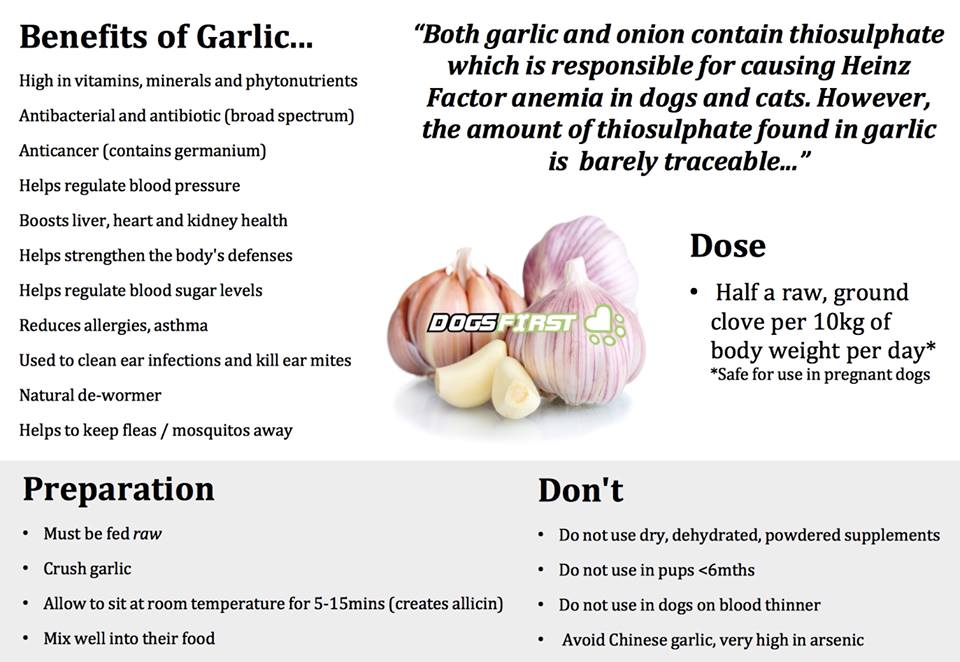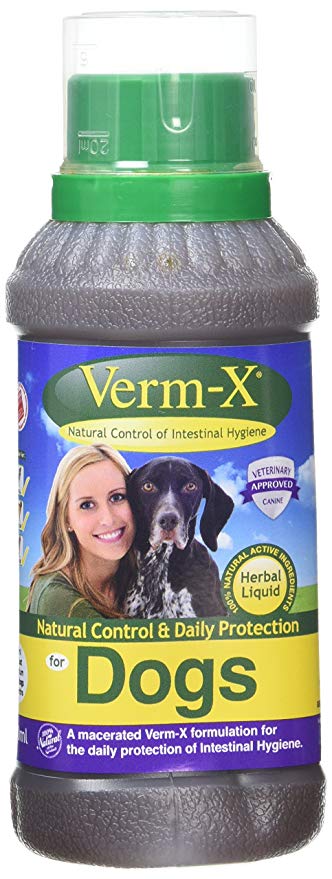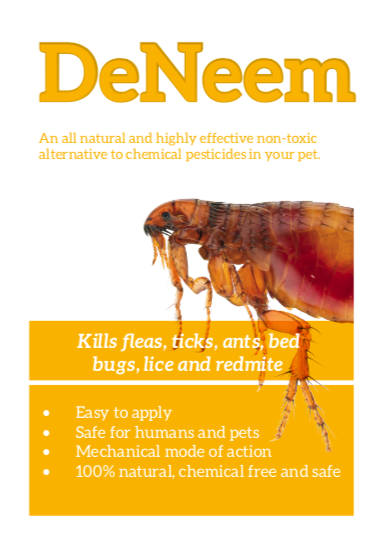Worms in Dogs are Rare, Contrary to the Many Scary Adverts, and Most are Relatively Harmless Anyway…
Everyone knows our stance on flea treatments – they’re absolutely unnecessary and potentially very harmful for you and him. I strongly advise not dosing a healthy dog with chemical flea treatments. If your child was to get lice you deal with it. You don’t apply noxious chemicals that if a louse bit them it would drop down dead. More here “Why I Don’t Recommend Chemically Worming Dogs“. Like a possible flea infestation, I don’t concern myself in the slightest with them, nor do most people on the more natural side of things. However it would be amiss of me for me to say you should do the same so below you will find a few natural ways to prevent worms in dogs.

Worms Are Rare in the Irish Dog Population (despite the heavy advertisements)
There are a few worms about in Ireland that can populate your dog. Most are gut worms which, as their name suggests, populate the gut of your dog (namely round worms, hook worms and tapeworms).
The other type you will hear about are lung worms, which live in the lungs. While rare, this does exist in Ireland. The case I heard of was in a dry fed lab that consumed enormous amounts of snails each day, likely for protein as it is a common enough incidence in dry fed dogs but rarely in fresh fed dogs. So IF your dog eats snails and IF that snail is infected then yes lung worm might be something to think about, but I’d actually be thinking about sorting out his diet so he doesn’t go for such a poor quality food item. Some folk worry about infected snails crawling across food bowls, there’s not much I can say about that except to move swiftly on to point 2 below…
A Worm Issue in Dogs is Rarely Deadly
While worms are heavily advertised “danger” to your dogs the truth is should your dog pick up any of the above it is not going to end his life in minutes, any more than it would in us. Should you notice an issue (itchy bum, swollen belly, weight loss) you have oodles of time to take action. But before you go nuclear with the chemical flea control, consider the third point below…
Mild Natural Wormers For Dogs
I positively loathe over-priced chemical wormers for dogs with no worms. It makes as much sense as horrible chemical flea treatments for dogs with no fleas. Maybe…MAYBE if I found some stubborn worms like lung worm then yes I’d consider going nuclear but why do it par course?!
There are lots of natural worm preventatives (anti-helminthics to give them their real name) that not only do a great job of keeping them away but should they pop up will kill any and all gut worms. The thing is, as with most natural treatments, there is little good science on natural wormers. Nobody does good (costly) science unless a dollar can be made so true evidence of the effectiveness of natural therapies are generally woeful.
Mild natural anti-worm treatments (lets call them preventatives) include a small amount of fresh garlic every other day (half a clove per 10kg body weight is safe for dogs). Awhile ago we posted up about pumpkin seed oil which is a popular anti-helminthic (among a number of other benefits). You can find it in Lidl. Like a little fresh garlic (the origina anti-helminthic) pumpkin seed oil is a good preventative, keeping worms from settling in the system. You can find at Lidl.
Stronger Natural Wormers For Dogs
The best natural wormer out there, at least the most popular, is VermX. It’s a brilliant product, you can find VermX on Amazon. Check out those reviews, pretty impressive.
For lungworm in dogs, you may need to go nuclear or see a natural vet for some wormwood and black walnut hull. However I don’t recommend wandering down this path aimlessly on your own without the necessary hand-holding of a good natural vet.
You Can Get Faecal Egg Counts for as Little as €15!!!
Many vets will provide the service of a faecal egg counts. This is where you bring a fresh poo sample with you to the vets on check up day. For as little as €15 the vet will tell you if he has worms or not. If he does you can decide which way to go. If he doesn’t you have saved him a more expensive chemical worm treatment. Irish Equine Centre and Dublin Holistic Vet provides this service in Ireland or you can get it done online from www.wormcount.co.uk in the UK. US you’re on your own, not sure who does it out there but you can be sure a few companies do.
Worming Puppies
Many pups are born with worms and there’s likely a good “exposure” reason for this. It’s thought hormones during pregnancy activates roundworm larvae which may be laying dormant in the bitch and these are then transmitted in all the usual ways. An initial dose of D.E. will clear this infestation. Like all the other folk out there who refuse to use chemical treatments as preventatives, I use the natural alternatives above and assume they are doing the job. If she’s unlucky enough to contract something nasty I’ll deal with it then.
Worms in Dogs, Conclusion
Maybe I’m getting lucky but I’m surrounded by hundreds of unwormed dogs here and still no sign of any worms in a healthy adult dog. Most of these owners are well educated on the matter and are likely employing some form of natural alternative. Still it would be irresponsible of me to advise you to not worm, it’s up to you but my tuppence worth is this – you simply cannot protect against everything in the world and I’m not going to try. But please weigh up the chances of infestation and the dangers associated with it with the potential for side effects from a nasty, over-priced chemical worm treatment which is only available with a trip to the vet.
Further Reading









